In this edition
- About the Team
- The 40-Hour Hope Advocacy Training
- Classes: How Not to Fall for a Jerk (or Jerkette)
- Classes: Our Home Runs
- Partner Highlight: SafeNest
- Strangulation: A Red Flag for Homicide A Workshop by SafeNest
- Hope Team in the Community
- I’ll Allow It Nevada Podcast Interview
- In the News: A Focus on Child Safety in Domestic Violence Cases
- Piqui’s Law Passed in California
- Kayden’s Law
- United Nations Updates
About the Newsletter
Welcome to the University of Nevada, Reno Extension’s Hope for Family Resilience Newsletter series! This series serves as a vital resource for individuals and families seeking support, education, and resources to build resilience and foster healthy relationships. Led by our dedicated team of experts, we aim to provide evidence-based strategies, insights, and information to empower individuals and communities to navigate challenges such as domestic violence, family dynamics, and interpersonal relationships. Whether you're looking to enhance your understanding of these issues, access valuable resources, or participate in training programs, our newsletters are here to guide you on your journey towards greater resilience and well-being. Stay connected with us as we continue to share valuable content and opportunities for growth and support.
About the Team
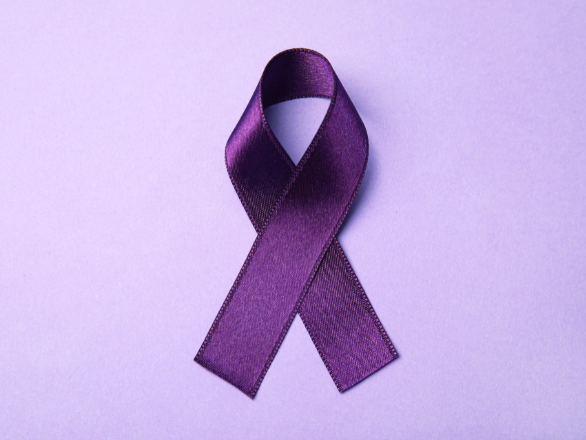
The purple ribbon is used to raise awareness about domestic violence.
Extension’s Hope for Family Resilience Program helps to support families through education, programs and resources that provide a foundation for using both the heart and head for building deeper knowledge, trust, reliability and commitment for families. The program is focused on bringing evidence-based education to community partners and community members related to domestic violence and building healthy family relationships to improve the overall health of our communities.
Academic Faculty
Pamela B. Payne, Ph.D., is a certified family life educator and an associate professor of human development family science and Extension, and the lead of the Hope for Family Resilience Team, also known as the Hope Team. She has over 20 years of teaching and outreach experience working in communities across the United States. Her community outreach and research has focused on interpersonal relationships, healthy family relationships, community program development and evaluation.
Las Vegas Team
Elizabeth Ornelas, who has a masters’s degree in psychology and is a certified alcohol and drug counselor intern, comes to the Hope Team with a background in education and mental health. She believes in breaking community silos and bringing Hope to providers and families through education, especially those who experience family court abuse.
Farrah Stockett, who has a masters’s degree in education and is a Ph.D. student in education (interaction and media sciences), brings her ability to focus on integrating technology in the classroom to enhance the educational experience for students to the Hope Team. Her background as a domestic and international teacher for ten years supports the Hope Team in education and program design.
Clair Thomas, who has a masters’s degree in education, brings 15 years of teaching experience and five years of trauma-informed yoga expertise to the Hope Team. Renowned for integrating yoga principles into education to foster peaceful living, she has greatly influenced curriculum design and family dynamics. Her role in the team marks a significant stride in promoting holistic wellness and transformative change in communities.
Graduate Assistants
Katie Cunius, who has a masters’s degree in science, is a doctoral student in the Interdisciplinary Social Psychology Ph.D. program at the University of Nevada, Reno. She primarily researches non-conscious biases in legal decision-making, specifically juror decision-making. Katie is also part of Extension's Hope for Family Resilience Team program.
Cristina Lopez, who has a masters’s degree in science, is a certified family life educator and a research assistant on Extension's Hope for Family Resilience Team program. She graduated with a master's degree in human development and family science from the University of Nevada, Reno in 2023. In her career, she has worked in non-profits and on research?projects dedicated to emerging adult identity development, sexual morality, menstrual equity, and language brokering. She will be pursuing a Ph.D. in human development family science in fall 2024.
Lilit Shakaryan, who has a masters’s degree in art, is a Ph.D. student in the Education: Human Development and Family Science Program at the University of Nevada, Reno and a research assistant on Extension's Hope for Family Resilience Team program. Since 2009, she has been a faculty member in the department of sociology at Yerevan State University, affiliated with the chair of social work and social technologies. Lilit has completed several research projects, including those implemented by international organizations.
Meet the Team
The 40-Hour Hope Advocacy Training
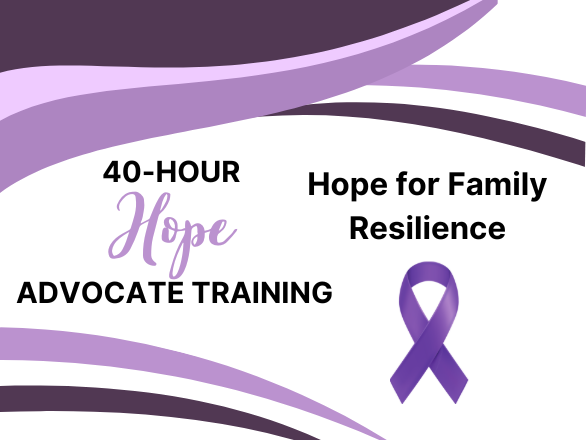
The Hope for Family Resilience's 40-Hour Hope Advocate Training banner.
The Hope Team hosted the long awaited 40-Hour Hope Advocacy Training Jan. 15-18, 2024. This training focuses on providing advocates of intimate partner violence with updated, evidenced-based best practices and information to improve the advocate experience and work with survivors. The first round of training was offered to the staff and volunteers for our partners at SafeNest in Las Vegas.
40-Hour H.A.T. Website
In this comprehensive 40-hour training program on domestic violence intervention, participants embark on a multifaceted exploration of the intricacies surrounding this pervasive issue. Participants will gain a nuanced understanding of the roots and context of domestic violence. Attendees will delve into best practices for direct client services, suicide intervention, assessment and safety planning, the impact on children and youth, cultural responsiveness, legal issues, referrals, resources and more.
The 40-hour training was developed over the course of 2023 by the Hope Team, including the University of Nevada, Reno graduate students and the Las Vegas Extension team. After seeing the need in Nevada for a comprehensive training for advocates, the team began talking with other organizations and agencies, doing extensive research, and learning the needs of the diverse population in the domestic violence and intimate partner violence victim survivor community. Topics consistently addressed, like the needs in the diverse populations and the burnout faced by advocates, helped inform the topics covered in the training. With over 15 modules, video content from the board and other guests on their areas of expertise and information backed by research, this training covers topics that will set any advocate up for success.
The advisory board, mentioned above, participated in ensuring content material was up to date, accurate and represented best practices currently in use. The advisory board consists of eight members from seven different community-based prevention programs, agencies and initiatives.
This training is in the process of being peer reviewed and credentialed for continuing education credits.
Upcoming 2024 40-Hour Hope Advocacy Training Dates
| Location |
Dates |
| Reno, Nevada |
March 4-7, 2024 |
| Las Vegas, Nevada |
April 8-11, 2024 |
| Las Vegas, Nevada |
July 15-18, 2024 |
| Las Vegas, Nevada |
Sept. 18, 25, Oct. 2, & 9, 2024 |
| Las Vegas, Nevada |
December 3-6, 2024 |
If you are interested in bringing this training to your team, contact the Hope Team at HopeTeam@unr.edu.
Scholarships are available upon request.
Classes: How Not to Fall for a Jerk (or Jerkette)

Unfortunately, Jerks can come in all genders!
If you're tired of dating the same type of person and are ready to break the cycle, our course, "How Not to Date a Jerk (or Jerkette)," can help you achieve just that. Many of us find ourselves repeating the same dating mistakes and it can be frustrating and disheartening to keep ending up with the wrong person.
In this course, we'll show you how to recognize the signs of a potential jerk and avoid getting involved with them in the first place. We'll help you understand why you might be attracted to certain types of people and show you how to shift your focus to more positive characteristics.
You'll learn about healthy boundaries and how to communicate effectively with your partner to set the stage for a successful relationship. We'll explore the role that self-esteem plays in dating and help you build your own self-confidence.
Our course is designed to be informative, engaging and practical. You'll have the opportunity to learn from experienced instructors who have helped many people break free from their dating patterns and find fulfilling relationships. Whether you're single and looking for love or trying to improve an existing relationship, "How Not to Date a Jerk (or Jerkette)" can help you achieve your goals.
Classes Website
Classes: Our Home Runs
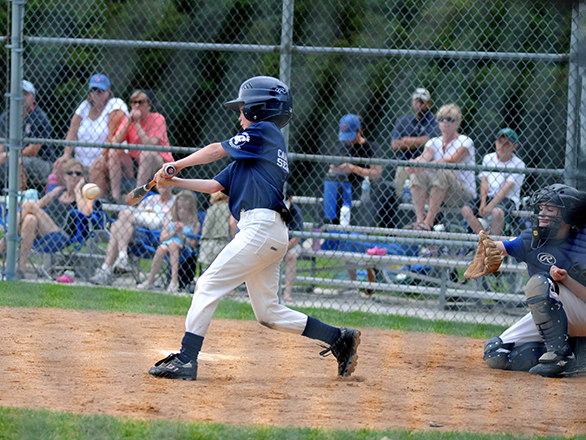
The relationship attachment model isn't just for dating!
If you're looking for ways to strengthen your family bond and create a team dynamic, our family-friendly workshop is perfect for you. This course is designed to teach you how to engage both parents and children in fun activities while also learning valuable skills to maintain and strengthen your closeness as a family.
The workshop focuses on two main points: first, how to use the relationship attachment model to build healthy bonds within the family, and second, the five areas that help build bonds and create a team-style family dynamic centered from the heart.
Classes Website
You'll learn how to create a safe and supportive environment for your family, where everyone feels valued and respected. You'll also gain practical tips on how to maintain a healthy family dynamic, even in the face of challenges and conflicts.
This is a family-friendly event, and we encourage children ages 5 and over to participate. There won't be childcare onsite, but we've designed the workshop to be fun and engaging for the whole family. By the end of the course, you'll have the skills and knowledge to create a strong, happy, and connected family that can weather any storm.
Partner Highlight: SafeNest
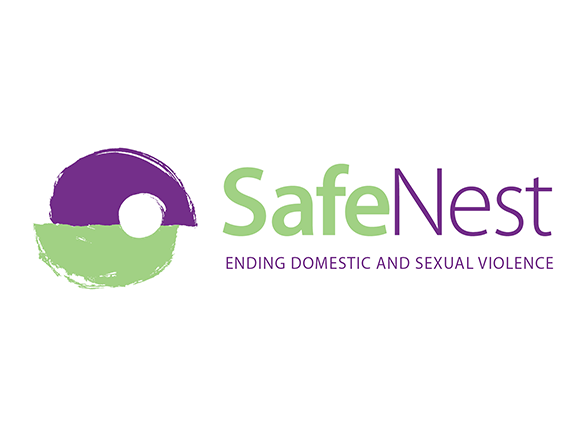
The Hope Team is a proud partner of SafeNest.
SafeNest’s mission is to provide comprehensive, collaborative and innovative services for everyone affected by domestic violence, sexual abuse and human trafficking while passionately working to end this shared epidemic. In 2022, SafeNest assisted 2,522 survivors with protection orders and 9,044 survivors through criminal and family court proceedings. Their trained advocates assisted 17,523 crisis callers and their PS417 advocates in the field supported 3,472 survivors in court and on scene with the Las Vegas Metropolitan Police Department.
We are proud to partner with SafeNest in supporting their PS417 program. The Hope for Family Resilience program provides PS417 advocates at the University Medical Center hospital. You can learn more about what they are doing with the PS417 program and its impact in the Las Vegas Valley as part of the 40-Hour Hope Advocacy Training.
PS417 Website
Strangulation: A Red Flag for Homicide
A Workshop by SafeNest
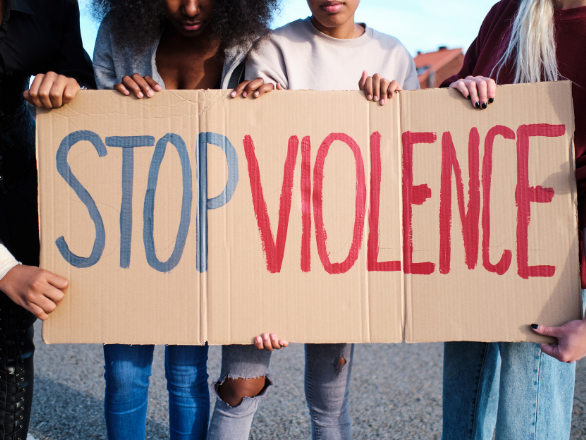
Strangulation has been identified as one of the most lethal forms of domestic violence and sexual assault.
The Hope Team attended this free workshop where we learned from experts in the identification, investigation and documentation of strangulation in domestic violence. In this training, Gael Strack introduced and trained attendees on the signs and symptoms of strangulation, lethality and how to improve individual responses.
Training Website
Victims of one episode of strangulation are 750% more likely to become a victim of homicide at the hands of the same partner than a woman who is assaulted but not strangled. With domestic violence homicides in Nevada on the rise, this important four-hour workshop helped law enforcement, emergency room staff, prosecutors and advocates become a potent line of defense to support survivors who are most at risk.
COURSE DESCRIPTION
Gael Strack, one of the leading specialized experts in the identification, investigation and documentation of strangulation in intimate partner violence cases, covered the following:
- Findings from a study of 300 misdemeanor strangulation cases
- Understanding the lethality of strangulation
- Identifying the signs and symptoms of strangulation cases
- Anatomy and medical aspects in surviving and non-surviving victims
- Investigating and documenting a domestic violence and sexual assault strangulation case for prosecution
- Legal aspects of strangulation cases with surviving victims
- Tools and resources for advocates
- Resources and handouts developed by the Institute
- Use of experts in court
Hope Team in the Community
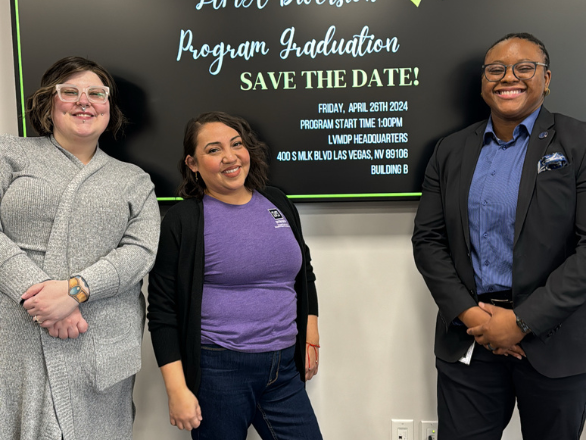
Would you like to donate time or resources to L.I.M.A.? Email the Hope Team at HopeTeam@unr.edu!
Law Enforcement Intervention for Mental Health & Addiction, referred to as L.I.M.A., is a partnership with 8th District Court and the LVMPD. They provide a voluntary opportunity to give a pathway to recovery for individuals suffering from substance use issues, mental health issues and homelessness.
The Hope Team co-sponsors this bi-annual meeting which is open to all community members to share resources. At the January 2024 meeting, there were 175 people in attendance – maxing out seating – so we are looking for a bigger location for the Summer 2024 community sharing meeting. What a great problem to have!
Did you miss the event? Check out the slides shared by over 50 programs, agencies and individuals in Clark County here.
Events Website
I’ll Allow It Nevada Podcast Interview

Did you know? Each podcast episode is accredited for continuing legal education (CLE).
In a recent podcast interview with?I’ll Allow It Nevada’s host, Anne-Marie Mayeaux,. Pamela B. Payne, Ph.D., shared the critical roles of the Lethality Assessment Program, referred to as LAP, and the Danger Assessment for Law Enforcement, referred to as DA-LE, in enhancing police interventions in cases of domestic violence and intimate partner homicide. These tools are vital in the assessment and management of such cases, not only in Nevada but across various states.
Podcast Link
Payne explored how the Lethality Assessment Program, a program developed by the Maryland Network Against Domestic Violence based on the research of Jacquelyn Campbell, Ph.D., RN, FAAN, effectively assesses the risk of lethality in domestic violence victims. The program is designed to not only evaluate the risk but also to ensure immediate referrals to social services, thus providing a crucial lifeline to those in danger. The program’s widespread use by police departments underscores its importance in addressing intimate partner violence.
Also, Payne shed light on the Danger Assessment for Law Enforcement, a tool specifically tailored for law enforcement officers. It offers a quick, evidence-based assessment to identify those at the highest risk of intimate partner homicide and near-lethal assault. This assessment’s approach integrates a coordinated response from law enforcement and domestic violence advocates, aiming to connect high-risk victims with support services and provide critical information for court proceedings. Its considerable predictive validity, without significant disparities across different racial and ethnic groups, makes it a reliable tool in the fight against domestic violence. The Danger Assessment for Law Enforcement is being adopted across Nevada.
Through Payne's insights, listeners will gain a comprehensive understanding of how these tools contribute to a more nuanced understanding of domestic violence situations. By guiding law enforcement in making informed decisions, Danger Assessment for Law Enforcement and Lethality Assessment Program are instrumental in ensuring the safety and well-being of individuals involved in these complex and dangerous scenarios.
In the News: A Focus on Child Safety in Domestic Violence Cases
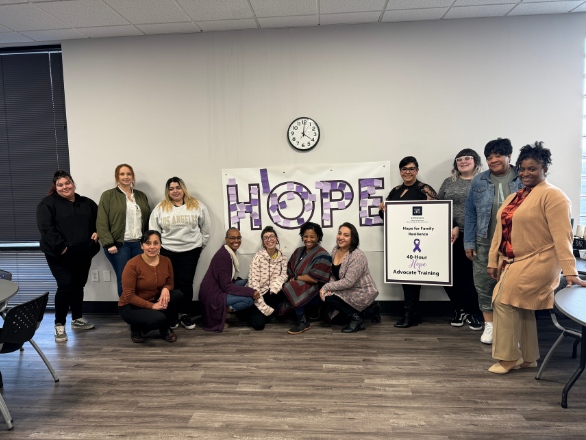
The Hope Team keeps the 40-Hour Hope Advocacy Training up-to-date with the latest in domestic violence legislation.
In the quest to address domestic violence and intimate partner violence, enhance children's lives, and reduce violence in homes, several initiatives and laws have been instrumental. The three, mentioned below, Piqui’s Law in California, Kayden’s Law, and United Nations Updates, are all covered in the 40-Hour Hope Advocacy Training in more detail. They represent a collective effort towards creating safer environments for children and tackling the complex challenges posed by addressing violence in family court systems. As we share these measures, we underline their impact on improving the lives of children and contributing to the broader efforts to decrease domestic violence in homes.
Piqui’s Law Passed in California
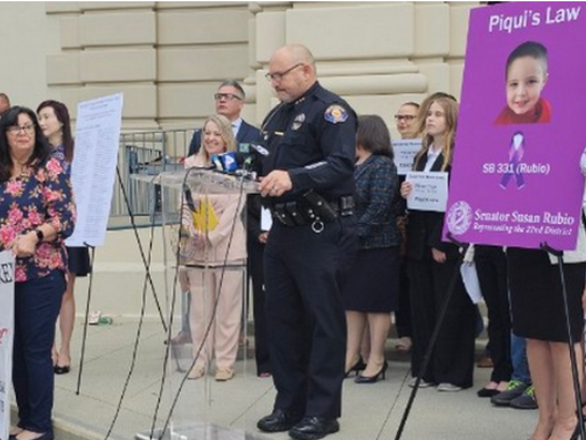
Image courtesy of Pasadena Now.
"Piqui's Law" is a significant piece of legislation signed into law by California Governor Gavin Newsom, aimed at protecting children from abusive parents and addressing systemic failures in the family court system. The law was named in memory of 5-year-old Aramazd “Piqui” Andressian Jr., who was tragically murdered by his father, Aramazd Andressian Sr., during a bitter custody battle in April 2017.
Piqui's Law
The main provisions of Piqui's Law include mandating judges to undergo training on domestic violence and child abuse, which is crucial for them to recognize patterns of abuse, understand the dynamics of custody cases involving domestic violence, and prioritize child safety in custody proceedings. The law prohibits judges from ordering "family reunification" programs and services, including camps, workshops and "therapeutic vacations" that are designed to address "parental alienation." These programs have been controversial and are now considered harmful, especially when they forcibly remove children from a safe, non-violent parent and place them with an abusive one.
This legislation comes after data showed that, since 2008, over 960 children in the U.S. have been killed by a parent during divorce, separation or custody disputes. The law is seen as a bittersweet victory for Piqui’s mother, Ana Estevez, who has been tirelessly advocating for changes in the family court system since her son's death. Estevez's situation was particularly heart-wrenching, as she had warned officials about her estranged husband's abusive behavior, had filed a restraining order and had pleaded for supervised visitation. Despite her efforts, the court allowed Andressian Sr. extended visits and the authority to take Piqui on a vacation, which led to the tragic outcome.
Piqui's Law is expected to bring about significant changes in the family court system in California, particularly in how judges handle custody cases involving allegations of abuse, by equipping them with better training and understanding of domestic violence and child abuse. The law is seen as a step forward in ensuring the safety and well-being of children involved in custody disputes.
Kayden’s Law
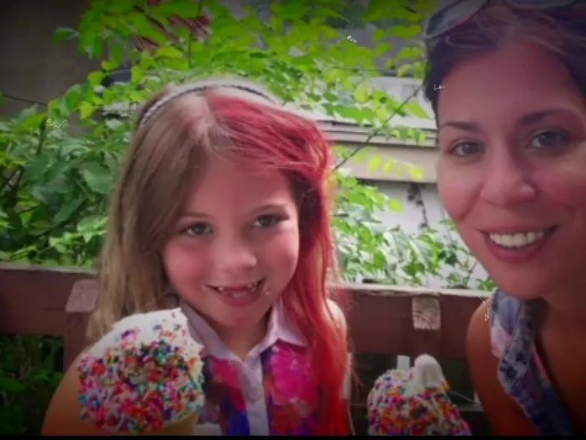
Image courtesy of Fox 29 Philadelphia.
Kayden's Law, a significant reform to the family court system, was inspired by the tragic case of Kayden Mancuso, a young girl tragically killed by her father. This law is a pivotal step in ensuring that children's safety is the foremost priority in custody cases. It underscores the necessity for family courts to effectively recognize and respond to claims of domestic violence and child abuse.
In March 2022, a key advancement was achieved with the passage of the Violence Against Women Act Reauthorization Act (VAWA) by the U.S. House of Representatives. This act, inclusive of Kayden's Law, addresses the shortcomings of state courts in safeguarding children during custody disputes. It aims to enhance the courts' competence in identifying and adjudicating instances of domestic violence and child abuse, emphasizing the reliance on valid and verifiable evidence.
The integration of Kayden's Law into the Violence Against Women Reauthorization Act empowers states to receive federal funding for amending their custody laws, promoting the welfare and protection of children in these sensitive legal matters.
Professor Joan Meier, the founder of the National Family Violence Law Center, was instrumental in the development of Kayden's Law. Her work began with the technical assistance for House Congressional Resolution 72 in 2018, which spurred the reform of state family court systems, particularly in cases alleging family violence. This groundwork was pivotal for the conception of Kayden's Law. Since then, numerous states have initiated reforms in their family court systems, a process facilitated by the National Family Violence Law Center. The financial support provided by Kayden's Law under the Violence Against Women Reauthorization Act a critical factor encouraging more states to undertake these vital reforms.
Following the federal enactment of this law, states are being urged to adopt similar legislation. The implementation, however, varies across states, each with unique custody laws that may require updates. Kathryn Sherlock, Kayden's mother, continues to advocate for these essential changes, highlighting the law's importance for each state.
While Kayden's Law has received widespread support, it has also been met with concerns. There are apprehensions about its potential consequences, such as the risk of dismissing or overlooking claims of parental alienation. Additionally, there are worries that the law might lead to increased instances where contact between parents and children is suspended.
Kayden's Law represents a crucial step towards enhancing child protection within the judicial system, balancing the need for thorough adjudication of domestic violence and abuse allegations with the overarching goal of safeguarding children's well-being in custody disputes.
Kayden's Law
United Nations Updates
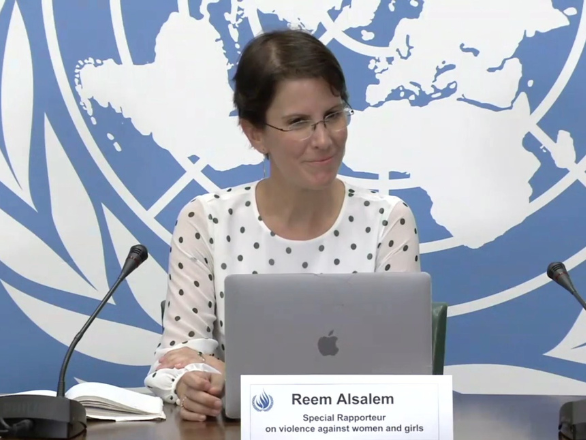
Image courtesy of Humber News.
In her report under Human Rights Council Resolution 50/7, Reem Alsalem, the Special Rapporteur on violence against women and girls, highlights a critical issue in family courts: the neglect of intimate partner violence in child custody cases. The report reveals that allegations of violence, often raised by mothers, are frequently ignored, or even result in penalization by law enforcement and judiciary systems.
Press Conference
A worrying trend observed in family courts is the dismissal of domestic violence and abuse history, sometimes under the guise of "parental alienation." This approach not only disregards credible accusations of abuse but also risks re-victimizing the victims.
Parental Alienation Syndrome is a discredited theory proposed by psychiatrist Dr. Richard Gardner. It suggested that a child's aversion to one parent in custody disputes was primarily due to the other parent's manipulation, described as "brainwashing." This theory has been debunked due to its lack of scientific validity and legal admissibility. Criticisms of parental alienation syndrome are rooted in the fact that it has not been recognized by major medical or professional associations, including the American Psychiatric Association, and is not listed in the Diagnostic and Statistical Manual of Mental Disorders.
Dr. Gardner's views, particularly his controversial stance on adult-child sexual relationships, have further discredited the theory. As a result, parental alienation syndrome is widely regarded as flawed and potentially harmful, especially in its application within family court proceedings, where it has been used to discredit allegations of abuse.
Alsalem's report, which involved over a thousand submissions primarily from fathers' organizations and various global regions, emphasizes the need for states and stakeholders to address this serious issue, proposing specific recommendations for reform, including prioritizing the child’s best interests with laws like Kayden’s Law and Piqui’s Law shared above. Another recommendation for reform is educating legal and mental health professionals. This is another reason the Hope Team is so excited about offering the 40-hour Hope Advocacy Training to professionals in these and many other industries. The contributions, including those from international organizations, non-government organizations, academia and victims, underscore the widespread impact of this systemic problem in child custody adjudications.


